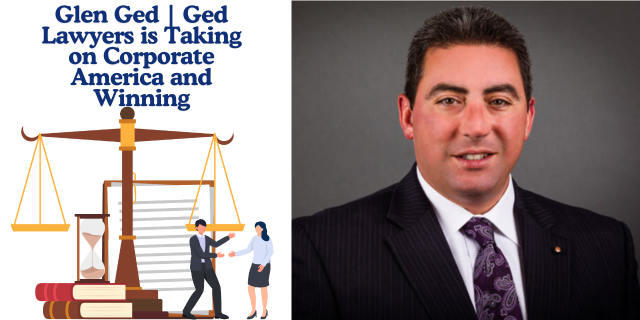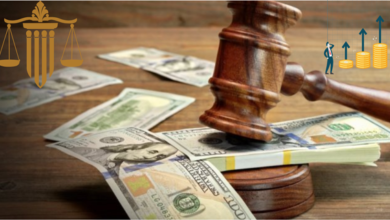Navigating the Aftermath: A Guide to Property Damage Lawyers and Your Rights Property damage can be a devastating experience, turning your world upside down in an instant. Whether it’s the aftermath of a natural disaster, a sudden fire, or the slow creep of water damage, the emotional and financial toll can be overwhelming. Navigating the complex world of insurance claims and legal recourse can feel like an impossible task. This is where a skilled property damage lawyer steps in,
acting as your advocate and guide through the storm. Understanding your rights and the role a lawyer plays is crucial to securing the compensation you deserve and rebuilding your life. To effectively navigate this challenging period, it’s essential to understand the types of property damage, the common issues that arise with insurance claims, and the ways a qualified attorney can help you fight for a fair resolution.
They bring a wealth of knowledge and experience to the table, meticulously reviewing your insurance policy, assessing the extent of the damage, and building a strong case to ensure your claim is handled fairly. Their approach is not just about filing paperwork; it’s about understanding the nuances of your situation, anticipating the insurance company’s tactics, and relentlessly pursuing the compensation you need to restore your property and your peace of mind. Their commitment extends beyond the legal aspects, encompassing a compassionate understanding of the emotional distress you’re experiencing and providing support every step of the way.
The Role of a Property Damage Lawyer: Your Advocate in Times of Need
A property damage lawyer is more than just a legal representative; they are your advocate, counselor, and strategist during a difficult time. Their expertise extends beyond the courtroom, encompassing a deep understanding of insurance policies, construction practices, and the various factors that can impact your claim. When you enlist their help, you’ll understand how they shoulder the burden of navigating the complex legal landscape, allowing you to focus on the essential task of rebuilding your home or business. You should recognize their unwavering commitment to protecting your rights and ensuring you receive a just outcome. In addition, consider how they can provide invaluable guidance and support throughout the entire claims process.
- Thoroughly investigate the cause and extent of the property damage, gathering evidence to support your claim and counter any potential disputes from the insurance company.
- Meticulously review your insurance policy, identifying all applicable coverages and understanding the nuances of the policy language to maximize your potential recovery.
- Handle all communications with the insurance company, protecting you from potentially harmful tactics and ensuring your rights are upheld throughout the claims process.
- Negotiate aggressively with the insurance company to reach a fair settlement that fully compensates you for your losses, including property damage, lost income, and other related expenses.
- Prepare and file a lawsuit, if necessary, to pursue your claim in court and hold the insurance company accountable for its obligations under the policy.
- Provide compassionate support and guidance throughout the entire process, understanding the emotional and financial stress you’re experiencing and helping you navigate the challenges ahead.
In short, a property damage lawyer acts as your shield against the often-intimidating world of insurance claims, providing the expertise, advocacy, and support you need to secure a fair resolution and rebuild your life after property damage. And their continuous dedication makes them a beacon of hope for those seeking justice.
Understanding the Types of Property Damage: From Natural Disasters to Construction Defects
Property damage can manifest in countless forms, each presenting its own unique challenges and requiring a tailored approach. Here are some of the most common types of property damage.
- Hurricane Damage 📌 Hurricanes, with their ferocious winds and torrential rains, can inflict widespread devastation on homes and businesses, causing structural damage, flooding, and wind-related losses. A property damage lawyer experienced in hurricane claims can help you navigate the complexities of these claims and secure the compensation you deserve.
- Fire and Smoke Damage 📌A fire can be one of the most traumatic events a property owner can experience, leaving behind not only structural damage but also lingering smoke and soot that can contaminate belongings and pose health risks. Skilled attorneys can work to ensure your claim covers not only the cost of rebuilding but also the expense of cleaning and restoring your personal property.
- Water Damage 📌Water damage, whether from a burst pipe, a leaky roof, or a slow, insidious leak, can cause significant damage to walls, floors, and foundations. If left unaddressed, water damage can lead to mold growth, further compromising the structural integrity of your property.
- Mold Damage 📌 Mold is not only unsightly but also poses serious health risks. It can thrive in damp, poorly ventilated areas, often as a result of water damage. Many insurance policies exclude or limit mold coverage, making it essential to have a skilled attorney on your side to advocate for your claim.
- Roof Damage 📌Roofs are particularly vulnerable to damage from wind, hail, and falling debris. Damage may not always be immediately apparent, but over time, even minor roof damage can lead to leaks and more extensive water damage.
- Sinkhole Damage 📌Sinkholes, often prevalent in areas with certain geological conditions, can cause sudden and catastrophic damage to properties, undermining foundations and rendering structures uninhabitable.
- Construction Defects 📌Construction defects, such as faulty materials or shoddy workmanship, can lead to a range of problems, from structural issues to water intrusion. These claims can be complex, requiring expert analysis to determine the extent of the damage and the responsible parties.
By understanding the specific type of property damage you’ve experienced, you can better prepare for the claims process and ensure your attorney has the information they need to build a strong case on your behalf.
Common Insurance Claim Issues: Navigating Denials, Delays, and Underpayments
Dealing with an insurance company after property damage can be a frustrating experience. Despite paying your premiums diligently, you may encounter various obstacles. Understanding these common issues is the first step toward protecting your rights.
- Claim Denials An insurance company may deny your claim outright, citing various reasons, such as policy exclusions, lack of coverage, or disputes over the cause of the damage.
- Unreasonable Delays Insurers sometimes delay the claims process, causing undue hardship and preventing you from rebuilding your life. These delays may be intentional tactics to discourage you from pursuing your claim.
- Underpayment of Claims Insurers may offer a settlement that is far less than the actual value of your losses, leaving you with insufficient funds to cover the cost of repairs or replacement.
- Disputes over Coverage Insurance policies can be complex, with confusing language and various exclusions. Insurers may dispute whether certain types of damage are covered under your policy.
- Independent Adjuster Bias Insurance companies often hire independent adjusters to assess the damage. While these adjusters are supposed to be impartial, they may be biased toward the insurer’s interests.
- Bad Faith Insurance Practices In some cases, insurance companies may engage in bad faith practices, such as intentionally misrepresenting policy language, failing to conduct a thorough investigation, or refusing to communicate with you in a timely manner.
By recognizing these common insurance claim issues, you can be better prepared to protect your rights and take appropriate action with the help of a qualified property damage lawyer.
Building a Strong Property Damage Claim: Evidence, Documentation, and Expert Witnesses
Building a successful property damage claim requires meticulous preparation, thorough documentation, and, in some cases, the assistance of expert witnesses. Here’s how to build a strong claim:
A strong property damage claim is not just about proving that the damage occurred; it’s about demonstrating the full extent of your losses and proving that the insurance company is obligated to cover those losses under the terms of your policy. Through meticulous preparation, compelling evidence, and the guidance of a skilled attorney, you can significantly increase your chances of a favorable outcome.
To do so you must preserve the documentation in hand, collect the needed data and evidence, and engage a professional expert.
Recoverable Damages in a Property Damage Claim: What You May Be Entitled To
Understanding the types of damages you may be entitled to recover is essential to maximizing your compensation and rebuilding your life. When a property damage claim is filed, the effects resonate deeply within the lives of those they represent and it can transform the entire family and create a new more optimistic future .
- Property Repairs: This includes the cost of repairing or replacing damaged structures, such as walls, roofs, floors, windows, and doors. It also covers the cost of repairing or replacing damaged fixtures and appliances.
- Personal Property: You may be entitled to compensation for damaged or destroyed personal belongings, such as furniture, clothing, electronics, and other valuables. Documenting these losses with photos, videos, and receipts is essential.
- Lost Income: If the property damage disrupts your business operations, you may be able to recover lost income, including profits, wages, and other expenses. This coverage, known as business interruption insurance, can provide crucial financial support during the recovery period.
- Additional Living Expenses (ALE): If you are unable to live in your home due to the property damage, your insurance policy may cover additional living expenses, such as hotel stays, meals, and other necessary costs.
- Cleanup and Debris Removal: The cost of removing debris, cleaning up hazardous materials, and mitigating further damage is also typically recoverable under your insurance policy.
- Mitigation Costs👈 Seeking to have a cost to pay or expenses as result of the damages made.
By understanding the full range of recoverable damages, you can work with your attorney to build a comprehensive claim that fully compensates you for your losses and allows you to rebuild your life with confidence.
The Claims Process Step-by-Step: What to Expect When Filing a Property Damage Claim
In the world of law, building trust through transparency and open communication is important to achieving success and greatly boosting the impact of your practice. Here are some effective ways to file claims, so it goes step by step.
- Document the Damage Begin by thoroughly documenting the property damage, taking photos and videos of all affected areas. Preserve any damaged items as evidence.
- Review Your Insurance Policy Carefully review your insurance policy to understand your coverage limits, deductibles, and any exclusions that may apply.
- File a Claim File a claim with your insurance company as soon as possible, providing them with all the necessary information and documentation.
- Cooperate with the Insurance Adjuster Cooperate with the insurance adjuster who is assigned to your case, providing them with access to your property and answering their questions honestly and completely.
- Obtain Estimates for Repairs Obtain multiple estimates from qualified contractors for the cost of repairing or replacing the damaged property.
- Negotiate a Settlement The negotiation process involves presenting your evidence, arguing for fair compensation, and potentially making compromises to reach a mutually acceptable agreement.
- Consider Legal Action If negotiations with the insurance company are unsuccessful, you may need to consider filing a lawsuit to protect your rights and pursue your claim in court.
BOCA RATON Office
7171 North Federal Highway
Boca Raton, Florida 33487
(561)-995-1966


